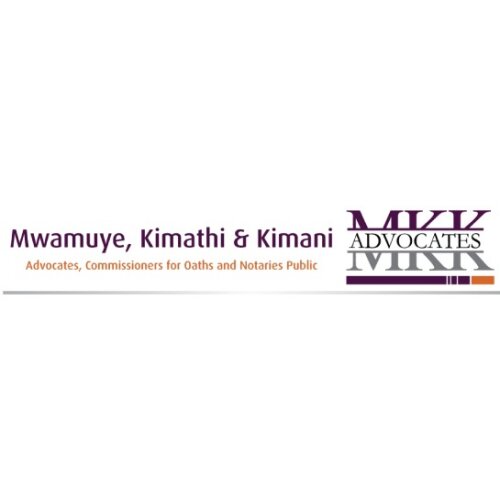Best Asylum Lawyers in Kisumu
Share your needs with us, get contacted by law firms.
Free. Takes 2 min.
List of the best lawyers in Kisumu, Kenya
About Asylum Law in Kisumu, Kenya
Asylum law in Kisumu, Kenya, falls under the broader framework of Kenyan and International Refugee Law. Any individual seeking asylum due to threats or fear of persecution based on their race, religion, nationality, or membership in a particular social group can submit a claim to the Department of Refugee Affairs in Kenya. The Refugee Act of 2006 outlines the grounds for granting asylum and delivers the requisite protections and principles that align with international standards.
Why You May Need a Lawyer
An experienced asylum lawyer can be incredibly helpful in navigating the complex asylum process. From filling out the necessary applications, giving advice on personal testimonies, to representing individuals in courts, a lawyer plays a key role. Particularly in cases where applications have been denied or challenging circumstances may result in deportation or detention, a lawyer's intervention can make a significant difference.
Local Laws Overview
The Refugees Act of 2006, the principle law guiding Asylum in Kisumu, Kenya, paints a clear picture of refugees' rights and obligations. Key among these is the right to fair and humane treatment, protection from expulsion, and voluntary repatriation. Importantly, applicants have the right to legal representation and processes free from discrimination, making understanding these laws vital for anyone seeking asylum.
Frequently Asked Questions
What is the process for seeking Asylum in Kisumu, Kenya?
One must first register with UNHCR and then apply for refugee status with the Department of Refugee Affairs. This involves interviews, submission of necessary documents, and sufficient proof of persecution risk.
Is there a time limit for applying for Asylum?
While there are no specific time constraints for applying for asylum, it is generally advised to apply as soon as possible after arriving in Kenya to increase the chance of a successful application.
Do I need a lawyer to apply for Asylum?
While it's not mandatory to have a lawyer, having one can benefit you by helping to navigate through the complex legal process, advising you on your rights, and representing you during the court proceedings.
Can my family members also seek Asylum?
Yes, dependent family members can also apply for asylum, provided they are included in the primary application.
What happens after one is granted Asylum?
Once granted asylum, you will get official status as a refugee and can work, receive social assistance, and protection from expulsion. You will also be eligible for a refugee identity card from the Government of Kenya.
Additional Resources
The UN High Commissioner for Refugees (UNHCR) has a local office in Nairobi and an implementing partner, HIAS in Nairobi and Kisumu with legal aid centres you can contact. The Refugee Consortium of Kenya (RCK) provides legal and social assistance for refugees and asylum seekers too for additional support.
Next Steps
If you need legal assistance related to asylum, consider reaching out to any of the resources mentioned or hire a lawyer specializing in asylum cases. Your initial focus should be on understanding your rights and gathering evidence to support your claim, and a professional can significantly help with these stages.
Lawzana helps you find the best lawyers and law firms in Kisumu through a curated and pre-screened list of qualified legal professionals. Our platform offers rankings and detailed profiles of attorneys and law firms, allowing you to compare based on practice areas, including Asylum, experience, and client feedback.
Each profile includes a description of the firm's areas of practice, client reviews, team members and partners, year of establishment, spoken languages, office locations, contact information, social media presence, and any published articles or resources. Most firms on our platform speak English and are experienced in both local and international legal matters.
Get a quote from top-rated law firms in Kisumu, Kenya — quickly, securely, and without unnecessary hassle.
Disclaimer:
The information provided on this page is for general informational purposes only and does not constitute legal advice. While we strive to ensure the accuracy and relevance of the content, legal information may change over time, and interpretations of the law can vary. You should always consult with a qualified legal professional for advice specific to your situation.
We disclaim all liability for actions taken or not taken based on the content of this page. If you believe any information is incorrect or outdated, please contact us, and we will review and update it where appropriate.









